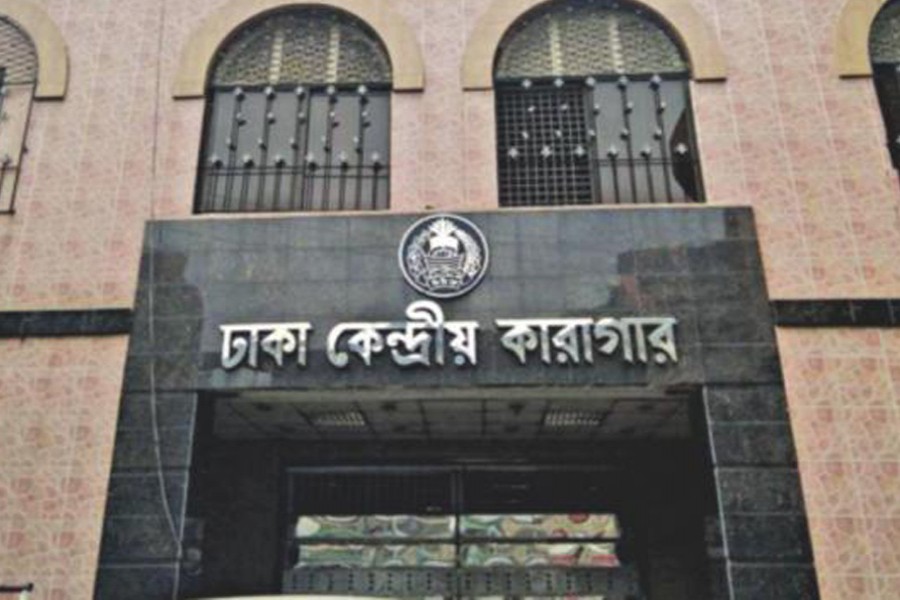Jails across the country are crowded with nearly three times more inmates than their capacity thanks to the wholesale arrest of people during the ongoing anti-narcotic drives, causing immense sufferings to the prisoners.
The jail authorities said they are facing an uphill task to accommodate the growing number of prisoners, especially in the frontier districts, as those are overcrowded well above 400 per cent-500 per cent of their capacity.
Chairman of the National Human Rights Commission (NHRC) Kazi Reazul Hoque and noted right activist Nur Khan voiced deep concern over the violation of prisoners’ human and legal rights in the heavily packed jails, reports UNB.
They said law enforcers should not arrest anyone without any specific allegation while courts need to ensure quick disposal of cases and the judges should grant bail without delay in billable cases.
They also think there is no reason to keep people unnecessarily in jail before they are convicted as the trial can be going on keeping the accused out of prisons if they are not hardened criminals and militants.
Sources at the Department of Prisons said the country’s 68 jails have the total capacity of accommodating 36,614 prisoners. Usually, those jails contain over 70,000 prisoners. But, there are now around 83,350 prisoners in the jails as of June 24. Among the prisoners, almost 37 percent are there in jails in drug-related cases.
Among the total prisoners, the officials said, around 35,815 have been put behind bars in drug-related cases. Of them, around 5,218 prisoners, including 189 women, were convicted in drug-related cases while about 19,000 are under-trial prisoners.
The number of prisoners started rising abruptly when the Rapid Action Battalion (Rab) launched the countrywide anti-narcotic drive on May 5.
The crackdown on drug peddlers and addicts got intensified further as police started a special anti-narcotic drive across the country on May 18.
Around 30,489 suspected drug traders and users have been arrested till June 21 since May 18.
Besides, 20 lakh pieces of Yaba pills, 3117 kgs of hemp, 23495 bottles of Phensidyl, 20 pistols and 5 local guns were also recovered as of June 3, sources at the Police Headquarters said.
A good number of suspected drug traders and illegal drug users were also killed during reported gunfights with police and Rab.
Contacted, Assistant Inspector General (Admin) of Prison Headquarters Abdullah Al Mamun said they have long been facing lots of problems due to the sudden rise in inmates in the country’s jails.
Usually, he said, the jails hold double inmates than their capacity, but now those packed up to 300 percent of their capacity.
Replying to a question, Mamun said the jails were holding around 88,000 prisoners during the first week of the June which was the highest number of prisoners in the country’s history. “Several thousand prisoners were released on bail before the Eid-ul-Fitr.”
Even, he said, the number of inmates rose to four times to five times higher than their capacity in some jails, and they have to shift the prisoners to other district jails for accommodation.
As the anti-narcotic special drive will continue, the jail authorities will have to face a serious problem to accommodate the prisoners, a top official at the Department of Prisons said requesting anonymity.
He also said many prisoners who were arrested in drug-related cases are now unwilling to come out of jail on bail fearing further arrest or getting killed by law enforcers as the drive is going on.
Contacted, NHRC Chairman Kazi Reazul Hoque said the human rights of prisoners are being seriously violated in the overcrowded jails.
“I think the law enforcers should be more careful about arresting people. If we assess the settled cases, we’ll find over 70 percent accused were acquitted, but they suffered imprisonment for a long time. So, no one should be arrested without any specific allegation,” he opined.
Besides, Hoque said procrastination in disposing of the cases or backlog of cases is one of the main reasons behind the rise in jail inmates.
The NHRC chairman said the judges should be liberal in giving bail to the accused. “The judges should give bail to those who have no possibility to flee the country or influence the cases.”
Human Rights Support Society (HRSS) adviser Nur Khan said jails should be turned into correction centres with various facilities to help inmates to go back to the normal life.
“No one should be imprisoned before getting convicted by the court and steps should be taken to conduct speedy trials of all the cases,” he added.


